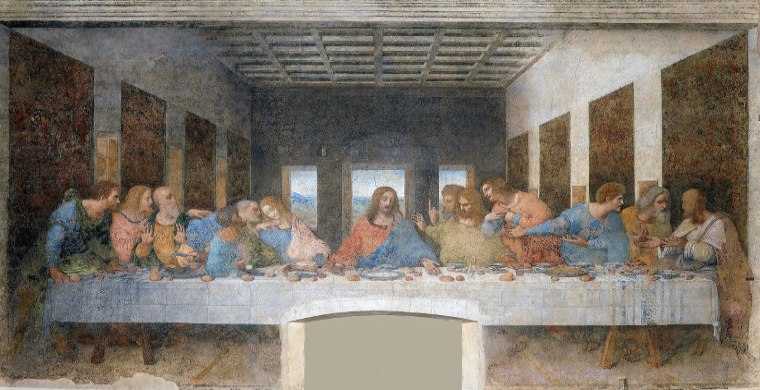God is Not Fair: Some Thoughts on Women's Ordination
By Gerald McDermott
https://anglicanpastor.com/god-is-not-fair-some-thoughts-on-womens-ordination/
January 20th, 2020
Editor's Note: The piece below represents the opinion of the author. Anglican Pastor does not take a site-wide position for or against women's ordination. We do, however, require both clarity and charity. We ask that your responses to it do so as well.
God is not fair.
He deprives men of the most profound and satisfying experience imaginable. Both men and women participate in the creation of another human being, but only women get to carry that little human being inside their body for nine months, nourishing that baby with sustenance from their own body. Only women get to bring that precious child into the world. In many cases, that child will have a more intimate relationship with its mother than with anyone else in the world.
So if God believes in equality, it is a different equality from what most think. God's equality does not mean giving every person the same chance to do everything.
Neither did Jesus' equality mean that. He treated women in revolutionary ways, and had female disciples like Mary who studied with him in ways normally impossible for Jewish women. Women traveled with him and talked with him in public in ways that violated cultural conventions. So when he chose his twelve apostles, it wasn't the culture or his own fears that prevented him from including women.
This is difficult to think through, because we want to believe that Jesus must have believed in equality as we do. But he did not.
Nor did Paul. Several times he told wives to be submissive to their husbands. He never told husbands to submit to their wives. Sure, he told the members of the Ephesian church to submit to one another (Eph. 5:21). But then his very next word was for wives to submit to their husbands (Eph. 5:22). At that point, we expect him to follow that up with a word to husbands to submit to their wives, but he does not.
He said women were not to exercise authority (presumably as a pastor in the church) over a man (1 Tim. 2:12). Women--not men--were to have a symbol of authority on their heads (1 Cor. 11:10). A bishop, presbyter, and deacon was--each one of them--to be the husband of one wife (1 Tim. 3:2; 3:12; Titus 1:6).
Was Paul so man-focused because his culture would not permit female religious leaders and he could never imagine such a thing?
Hardly. The ancient world was full of altars and shrines with priestesses at Rome, Corinth, and every major city. Ephesus was dominated by an enormous temple to Artemis (Diana), led by a female priest and her female assistants. So female presbyters in the early Church would not have been revolutionary. They were all over the Mediterranean world, and particularly in the backyard of one of the early Church's most important centers. Yet none of the elders in the church at Ephesus was female (Acts 20:17-38); all the articles and pronouns designating the elders are masculine.
But are we missing something? Is Paul simply talking about our fallen condition, whereas Jesus wants to redeem us from fallenness and bring us to the new creation which recreates things before the fall?
The problem is that Paul argues for male headship based on things before the fall--not after the fall. He says women should not be pastors because "Adam was formed first, then Eve" (1 Tim. 2:13). That is an argument based on the situation before the fall. He told the Corinthians that men don't need to cover their heads because "man was not made from woman, but woman from man. Neither was man created for woman, but woman for man" (1 Cor. 11:8-9). Again, Paul appealed to the situation before the fall.
Perhaps we are revolted by what Paul said and by what Jesus did (or did not do) because they violate what recent cultural mavens have told us. Men and women are absolutely equal in every way, we have been told. Therefore they should have the same role in every sphere of life, and many of us Christians have deduced that they should have the same roles in the church. After all, didn't Paul himself say that "in Christ there is not male and female" (Gal. 3:28).
He did indeed. Yet this is in the midst of his passionate argument that we are "justified by faith" (Gal. 3:24) and not "by the law" (Gal. 3:11). In other words, you don't have to be a Jew or a Jewish man who obeys Jewish law to be saved. All that matters is whether you--Jew or gentile, man or woman--give allegiance to the Jewish messiah (Gal. 3:26). As long as any of these are baptized into that messiah, they have "put on messiah" (Gal. 3:27).
This famous verse--Galatians 3:28--has nothing to do with family or church ministry roles but with salvation through the Jewish messiah. Men and women alike are saved by baptism and faith in that same Jewish messiah, and that has nothing to do with their roles in the home or church.
Paul's point is equality in justification by the Jewish messiah, not equality in roles in the home or church.
We late moderns want to apply Galatians 3:28 to the home and church, but Paul refused to.
That is our conundrum in the ACNA. We want to extend Galatians 3:28 to realms where Paul and Jesus clearly did not go.
What do we do? Should we feel a bit uncomfortable about trying to improve on what Paul and Jesus thought and did?
Gerald R. McDermott is Teaching Pastor at Christ the King Anglican Church in Hoover, AL.














